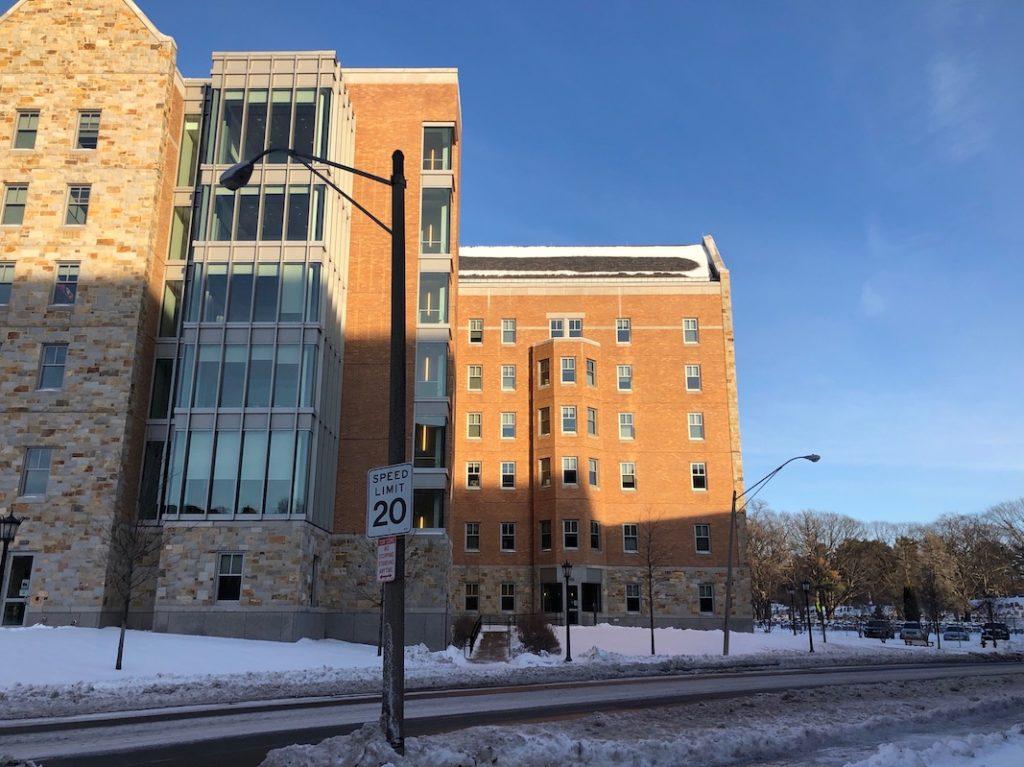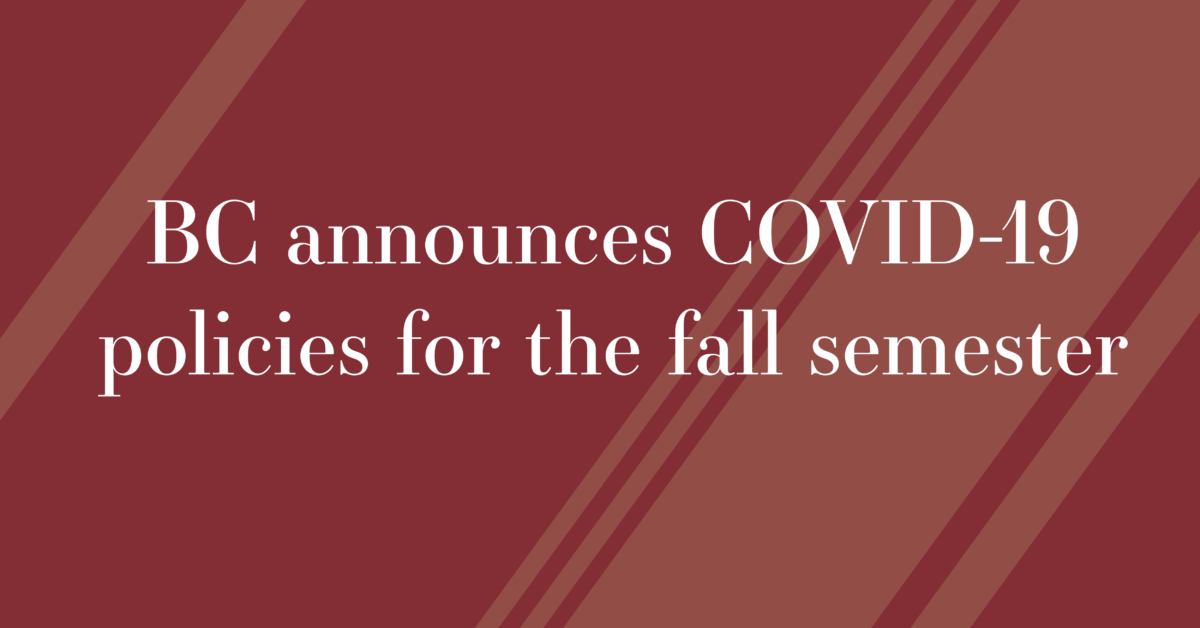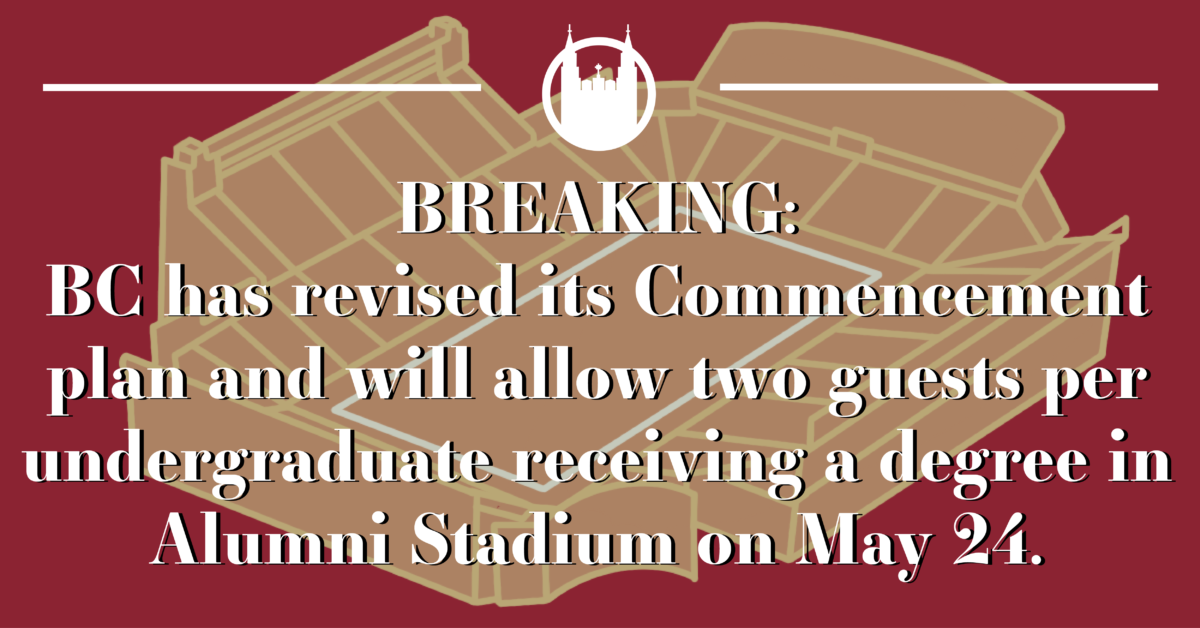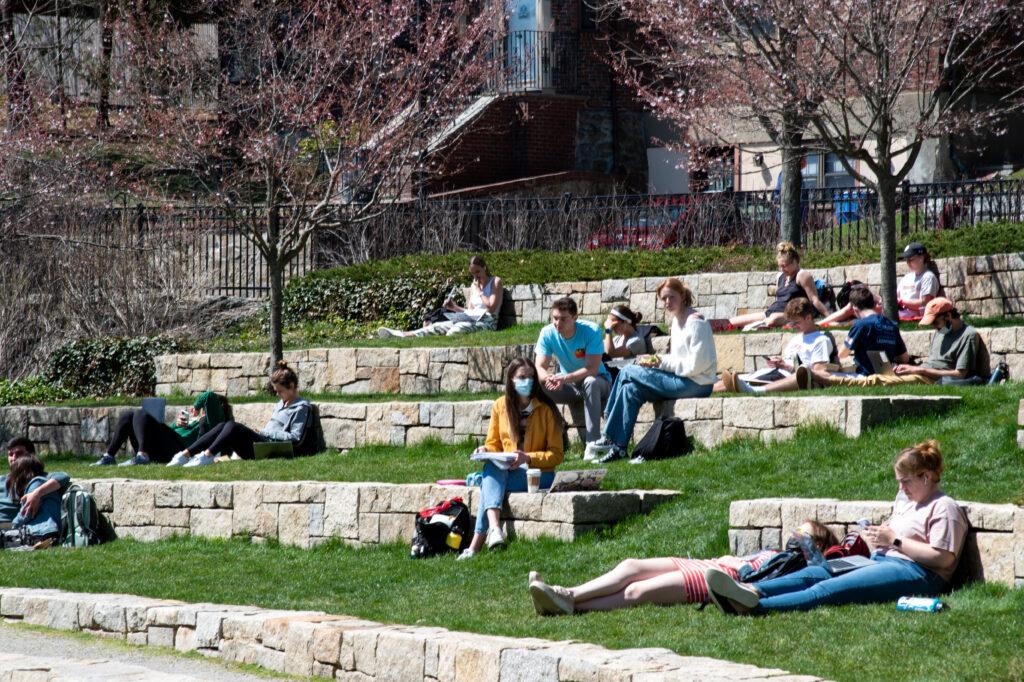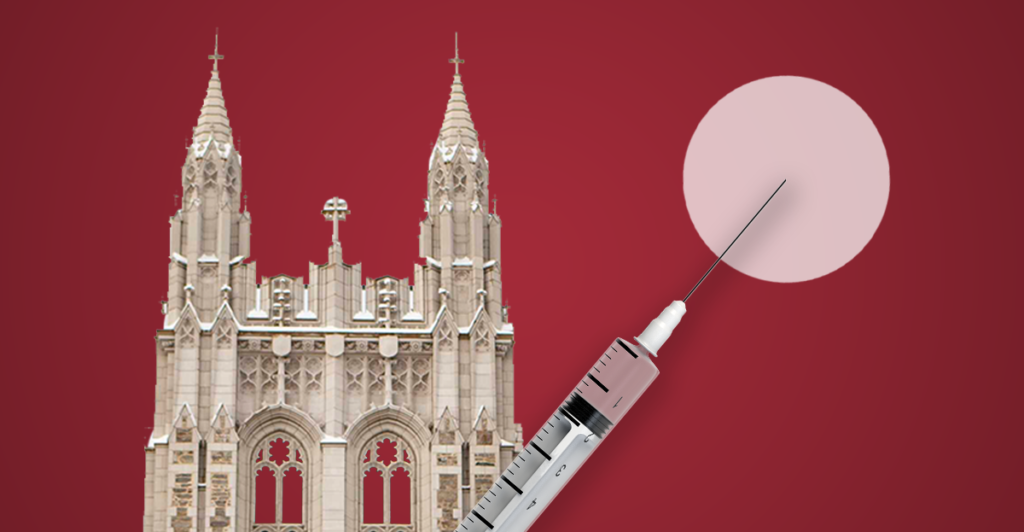By the time Boston College began its first day of online learning on March 19, most students had left campus, and several of the University’s normal operations had ceased on account of the COVID-19 pandemic. The libraries had closed, sports competitions had been canceled, and in-person Masses had been suspended.
But two students found themselves taking a trip to one place on campus that remained open—University Health Services (UHS)—to get tested for the novel coronavirus.
Sarah Moore, a former Heights editor and BC Law ’20, had been experiencing symptoms for the previous five days. She woke up the morning of March 14 feeling that her body temperature was off and had difficulty controlling whether she felt hot or cold. When Moore woke up from a nap later that day, she noticed that her breathing was raspy when she was lying down.
“I kind of started to panic because at that point, it was kind of clear that coronavirus was affecting Boston especially,” she said.
Moore had been in Ireland during Spring Break and attended her classes during the three days between Spring Break and the day the University announced it would be moving to online instruction.
When she took her temperature on the evening of March 14, Moore discovered she had a fever of 101 degrees. She called her health care provider, which put her on hold for an hour and a half. Her provider then told her she couldn’t be tested for COVID-19 because Ireland wasn’t then considered a Level 3 Country by the Centers for Disease Control and Prevention.
“But they were like, because you’ve been traveling and because you’ve been in airports, it’s just something to watch for,” Moore said. “But my symptoms were so mild that the only thing they could really tell me to do was just treat the symptoms and, if it gets worse, seek emergency medical attention.”
The CDC has since released an updated list of testing criteria, which no longer prioritizes those who have recently traveled to specific geographic areas.
While on hold with her health care provider, Moore called the Massachusetts COVID-19 hotline, where she was also put on hold. When the hotline called her back roughly four hours later, Moore was again told she couldn’t be tested but that she should stay inside for 14 days.
At the same time, on-campus undergraduates were in the midst of packing their belongings to move out of the residence halls. One senior student in the Carroll School of Management, who spoke on the condition of anonymity, said he began experiencing symptoms on March 16, the day after most students had to move out. An international student, he was granted an extension to stay on campus.
“At first, I just felt a little bit under the weather, had a bit of a headache,” the student said. “Nothing too major, but I was a little bit worried because of all the news obviously. And I could put two and two together and realize that it was something to be concerned about. And then that Tuesday, I felt a little bit worse.”
The student received a text on March 19 from a friend who had returned home from campus saying they had tested positive for COVID-19. The senior student was supposed to be moving to Upper Campus the next day with other students who had received housing extensions. But after possible exposure to the virus, he said he thought it didn’t make sense to move to a residence hall with communal bathrooms.
The senior called UHS and was told to head to the infirmary. He said he went into a special area, where he was met by someone who was head to toe in protective gear.
“It was very, very professional. It felt very much like something out of a movie,” he said.
UHS administered a nasal swab and sent it out for testing. The student stayed in UHS, where the only person allowed to come into his room was the doctor, who would wear a full protective suit when doing so.
“Everyone in UHS was absolutely amazing,” the student said. “The nurses were just in constant communication, having me check my temperature, monitoring my symptoms, bringing me food, bringing me fluids. I was really well looked after there.”
That same day, Moore also called Health Services. At that point, Ireland had been added to the list of Level 3 countries, and UHS told her to come in for a test as soon as possible.
In the days after she began to feel sick, Moore had maintained a fever ranging from 99 to 101 degrees. She had also continued to experience shortness of breath—to the point that she would sleep sitting up because it was easier. By the time she went to UHS, the fever and shortness of breath had subsided but she was still experiencing muscle pains.
UHS informed her she had tested positive on March 22, three days later.
“I had made myself pretty nervous about [the test] before, because I was reading that it’s really terrible,” Moore said. “And it was unpleasant, but it was not like something that should deter people from going to actually get tested.”
The senior student, after being tested, stayed in UHS until he no longer had a fever, at which point he moved to a room by himself in 2150 Commonwealth Ave.
The Massachusetts Department of Public Health called the senior student on Wednesday to inform him that he had tested positive for COVID-19. He said he was unsure of how or when he contracted the virus and that there was no way of knowing when it got to campus or how many people it spread to.
“We all got the email that school was canceled, and then the senior class, I think, really was shocked by the news. And there was definitely a lot of interaction over those last four days,” he said. “I don’t know when I got it or how I got it, but social distancing wasn’t really adhered to by that many people at that point.”
After receiving the positive result, the senior was moved to a different room in 2150. The new room was an “isolation room,” one designated for students who have tested positive for COVID-19. He had previously been living in one of the “quarantine rooms,” which are designated for students who are awaiting results.
Either way, the student said, no one is allowed to come into the rooms. He said BC Dining Services prepared food for him and brought it to his room every day, and ResLife was in constant communication with him. The UHS nurses would call his phone, and he would check his temperature himself.
“There are so many people, so many nurses, so many doctors, so many ResLife staff who I’m so grateful for, who have just been helping me nonstop for the last few days,” the senior said on Wednesday. “Everyone’s been bringing me food, everyone’s been checking in on me and making sure I’m doing OK. It’s been an amazing response.”
Both students said that upon receiving the positive results, they were instructed to reach out to the people they had been in close contact with. The senior student said that when he tested positive, the Department of Public Health asked him for the names of people he had been in close contact with. He had already updated those people about his symptoms as soon as he was in UHS, he said.
“That was the first thing they told me to do when I checked in, is to let my roommates know, let other people that I’ve been in touch with know, so that they can take the necessary precautions,” he said.
Moore said that the day she received her results back, UHS told her to reach out to all of the people she had interacted with within a distance of six feet for at least 15 minutes since her symptoms had started.
“Until you really sit down and try to think about who you have interacted with and who they could have been interacting with in such a short time—like, what, a two week period—it’s shocking how many people you come into contact with,” Moore said.

